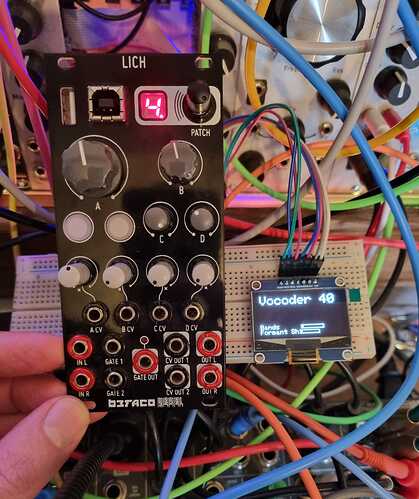Hi,
I’ve been putting together some framework code to allow writing patches in Rust, and I think it’s just about ready for other people to try using it:
https://github.com/orukusaki/owl_patch
All the basic features are implemented, and the examples patches work on my Lich using Owl2 and Owl3 modules. There are still some more advanced features to add in future - see the README for details.
I’ve not included a DSP library - users are free to find or create their own. One of the examples uses the FunDSP crate, which works ok, despite not being the most highly optimised for the Arm MCUs.
Anyway I’m not sure how many people this will interest, but if you are interested in trying to write patches in Rust, please give it a go and let me know how you get on.
 I have those LUT things on my todo list. I think the big thing will be working out how they can co-exist with / enhance existing maths crates:
I have those LUT things on my todo list. I think the big thing will be working out how they can co-exist with / enhance existing maths crates: 
